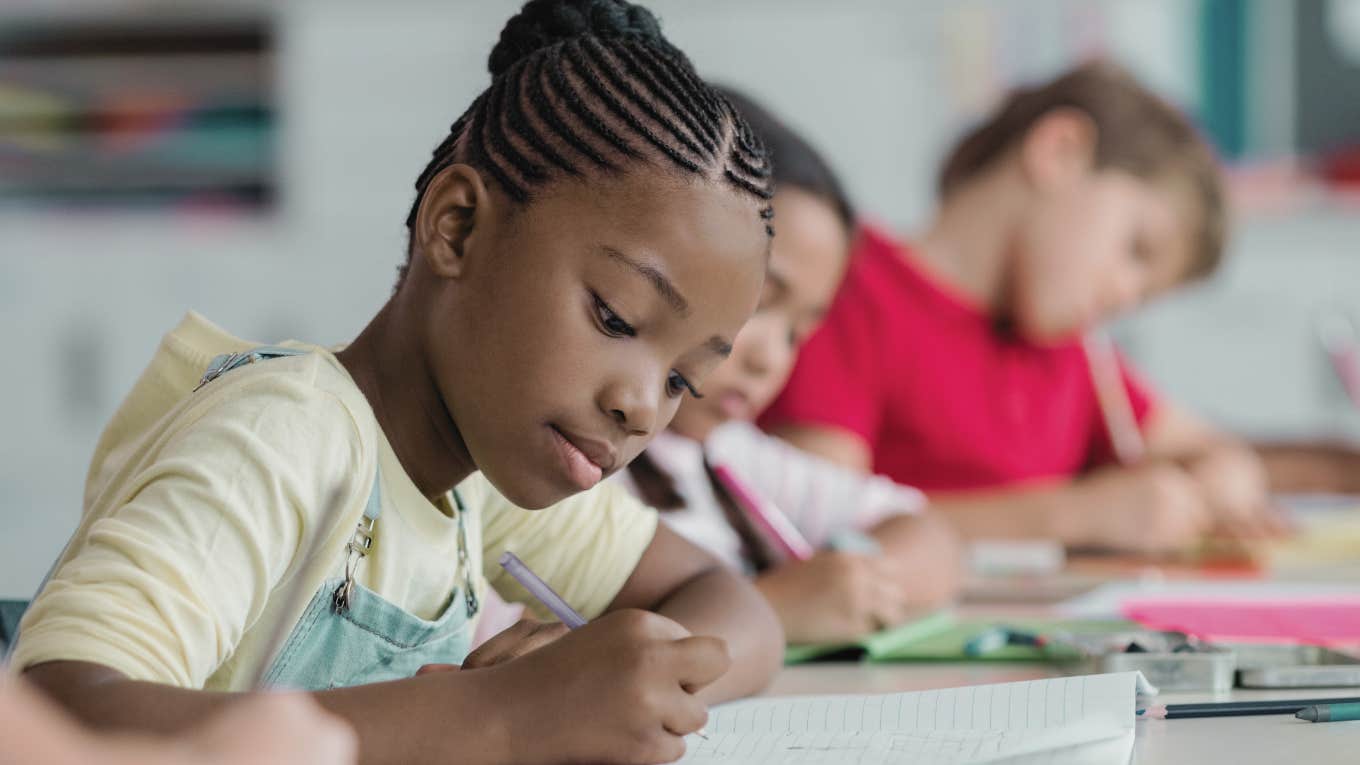Black Woman Urges Parents To Stop Sending Their Children To Predominantly 'White Schools' For Access To Better Education
She pointed out the harm that it can do for Black kids to be surrounded by others who don't look like them.
 Rido | Canva Pro
Rido | Canva Pro A Black woman has opened up a discussion about parents sending their children to schools with other kids who don't look like them after experiencing the same thing herself.
In a TikTok video, a content creator named Ekaynuh insisted that nothing good comes from Black children spending their formative years surrounded by people who look drastically different from them, even if parents are trying to give their kids a good education.
She urged Black parents to stop sending their kids to predominantly 'white schools' for access to better education.
Ekaynuh explained that her parents made the decision to send her to schools where she was one of the only Black students in the entire classroom, and now as an adult, she admitted that her parents really regret their decision.
She pointed out that the main reason why is because of the irrefutable damage that it's done to her self-esteem.
"It takes so much time and effort to self-correct that it's not worth it, but sending them to an all-white school with people who do not look like them is not the answer," Ekaynuh insisted.
Her argument highlights the fact that many U.S. schools are still slightly segregated.
According to a 2022 report by the U.S. Government Accountability Office (GAO), more than a third of students (about 18.5 million of them) attended a predominantly same-race/ethnicity school during the 2020-21 school year. And 14% of students attended schools where almost all of the student body was of a single race/ethnicity.
The report was a follow-up to a 2016 GAO investigation on racial disparity in K-12 schools. The initial report painted a slightly worse picture, but it seems things haven't changed.
Black parents often feel the need to send their kids to predominately white schools where they can have access to a better education and resources. Unfortunately, this doesn't help the problem at all.
Not giving Black children the opportunity to interact and be around other kids who look like them will only create issues down the line, including internalized racism and self-hatred for their skin color and others who look like them.
It's no secret that school districts with more Black students can invest far less money in buildings than majority-white districts — and have unequal funding by state governments, which make the problems worse. However, the solution isn't to just take all of those Black students out and put them in all-white schools.
Instead, more funding needs to be allocated to schools that are suffering due to financial disparity between districts.
She pointed out that access to a better education isn't worth the self-esteem issues that happen down the line.
"I feel like people are so quick to judge these suburban Black kids who have these types of problems, and I don't think you understand when you have been fighting for your life in defense of your race since you were 10 years old, it's not like a switch you can just get back into and think properly," she continued. "It takes effort, and it's really messed up."
The real issue is the system and the government's lack of funding for inner-city schools where Black and Brown students are the majority of kids walking the halls.
The excuse of wanting access to a better education is a valid concern, especially for Black parents, but it's at the expense of their child's self-worth.
The solution is simple. School funding should reflect the financial concerns of each district.
"Send your kids to school with people who look like them and pay for the extra tutors," Ekaynuh urged. "Or send them to a white school but put them in environments with people who look like them so they don't forget who they are."
Nia Tipton is a Chicago-based entertainment, news, and lifestyle writer whose work delves into modern-day issues and experiences.

